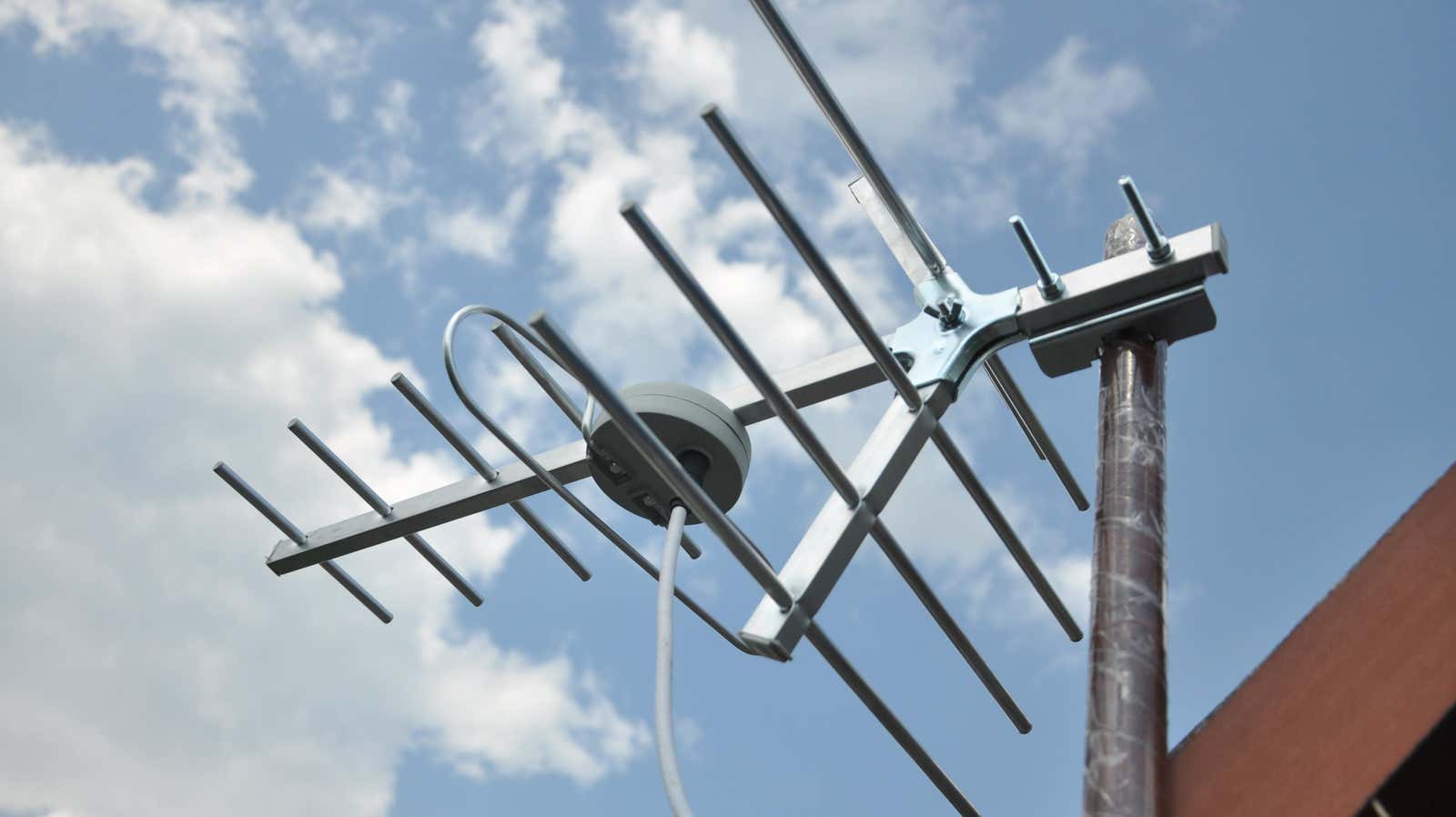What Is the Best Way to Watch TV for Free?

Stop paying for TV. I’m not just talking about cable: you can forgo Netflix, Hulu, HBO Max and Disney+ and still be able to watch TV for free. Sure, you won’t be able to keep up with the golden age of streaming, but you’ll have 24/7 free entertainment in your living room thanks to antennas and internet TV. If you’re thinking about really cutting the cord and choosing one of these options, you need to know what makes them special, as well as what makes them different from each other.
How does a TV antenna work?
Free-to-air television lives on today. In the era of cord cutting, streaming, and generally expensive television, you still have free programs flying overhead every minute. However, you can’t access them with your TV alone, and you can’t rely on rabbit ears. To enjoy this content, you will need an antenna.
There is a huge variety of antennas, each serving a different purpose. If you live in an open, sparsely populated area, a cheap flat antenna will probably work for you. They usually cost around $20 , which makes investing one jump less. However, antennas start to increase in price as their quality increases: some are capable of receiving 4K signals and can receive more channels than discounted options.
However, cheap antennas can work for you even in an apartment in a crowded city. However, you will probably have to go through a lot of trial and error to find the right place for the device. Unlike ads that show an antenna attached to the wall behind your TV, in real life you can find the perfect antenna location in some weird or cramped place.
Windows are the best place to start, especially if you have access to the outside of the glass, such as through a balcony, a fire escape, or if you’re on the ground floor. If you want to wall-mount it in your home, you must be prepared to test every square inch of available space with an antenna in just about every configuration imaginable. If the antenna is placed vertically on one of the walls of my room, I won’t get a signal, but moving it 90˚ turns on the channels. Don’t ask me why.
How many channels you will receive depends on your antenna and your region. The bigger and better the antenna, the more options it will connect to, with some antennas claiming a range of 60 to 70 miles . Again, if you live in an open, unobstructed area in terms of both your home and the land around it, your signal is probably stronger than if you live somewhere with a lot of interference.
With a little patience (and a little effort), you will surely find a place in your home that receives a decent amount of channels with a stable connection.
What is Internet TV?
A faster and more convenient option is to use free Internet TV. There are many options, from Pluto TV to Tubi TV (for a complete list , see my guide here ). These services allow you to tune in to live TV broadcasts completely free of charge, as if you had an antenna connected. If you have a Smart TV or streaming device like Roku or Fire TV Stick, you probably have access to apps for those services built into your system, or at least available as a free download.
In my opinion, there are two main advantages of Internet TV compared to an antenna: first, it is complete convenience. You won’t waste half a day checking every spot in your house for your antenna (by rotating the antenna 90˚ on that square inch of the wall, I get 20 channels, but the right side on the balcony window gives me 45), since everything, what you need to do is open the app and start clicking. Of course, the lack of an antenna means free TV is really free: it costs nothing to launch the Pluto TV app, and an antenna is an investment (albeit a small one).
The second advantage is the number of channels you will find. There is a seemingly endless supply of these free channels, many of which provide shows you actually want to watch. My favorite channels are those dedicated to a single show, such as the Portlandia channel. Who doesn’t need continuous, unlimited access to Fred Armisen and Carrie Brownstein?
Of course, all of these channels are supported by ads. Nobody likes ads, but you will be dealing with them whether you choose antenna TV or Internet TV. However, with Internet TV, advertising is worse. While aerial TV shows ads at standard predictable times, Internet TV sometimes randomly adds ad breaks to content. You will be watching a movie on one channel when Dr. Squatch abruptly interrupts a dramatic scene. But hey, it’s free: it’s hard to complain about ads when you don’t pay for TV. Hell, you see a million ads when you watch cable and you pay a LOT for it.
It is worth having both Internet TV and an antenna
With all that said, Internet TV seems like a clear winner: a similar experience, without pains in the ass? Why would anyone bother with an antenna? Well, as you might guess, I still use an antenna, and for one reason: local channels. Internet TV is great, no doubt, but it’s the same everywhere. It offers many channels that you can pick up with an antenna, but local stations that only serve your area will not be there. The antenna is how you can catch these options, stay up to date with local news, and watch great community station programming.
I love both options and would recommend them to anyone who wants a complete package.